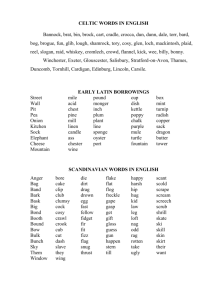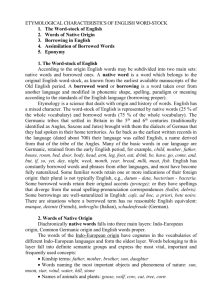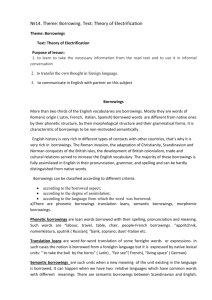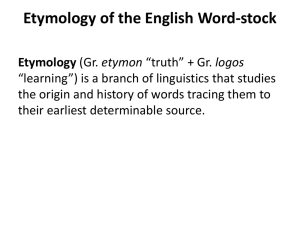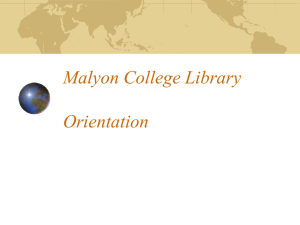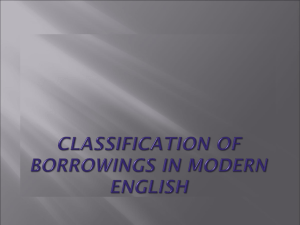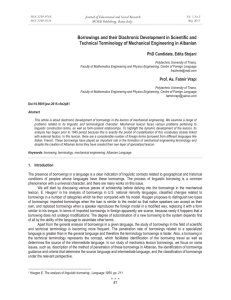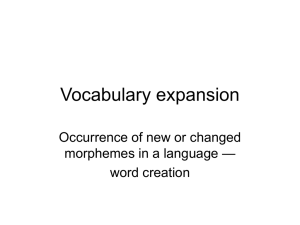Completely assimilated borrowed words
advertisement
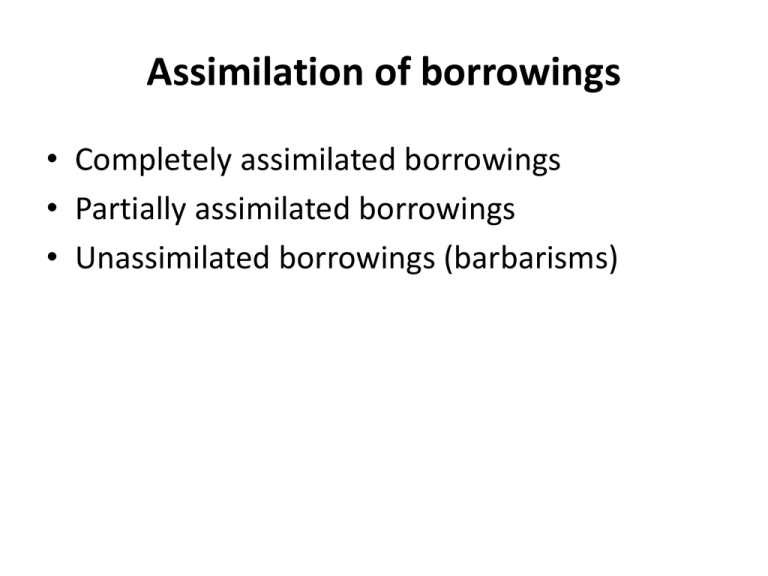
Assimilation of borrowings • Completely assimilated borrowings • Partially assimilated borrowings • Unassimilated borrowings (barbarisms) Completely assimilated borrowed words • follow all morphological, phonetical and orthographic standards of the English language E.g. cheese (the word of the first layer of Latin borrowings), husband (Scand.), face (Fr.), animal (the Latin word borrowed during the revival of learning). Partially assimilated borrowed words • borrowings not completely assimilated graphically E.g. the final consonant is not pronounced: ballet, buffet; with diacritic mark: café, cliché. Specifically French digraphs (ch, qu, ou, etc.): bouquet, brioche. Partially assimilated borrowed words • borrowings not completely assimilated phonetically. E. g. the accent on the final syllable: machine, cartoon, police; sounds that are not standard for the English language: [ʒ] – bourgeois, prestige, regime. • borrowings not assimilated grammatically. E. g. : crisis – crises, phenomenon – phenomena. Partially assimilated borrowed words • borrowings not assimilated semantically denote: - Foreign clothing: sari, sombrero - Foreign titles and professions: shah, rajah, toreador - Foreign vehicles: rickshaw - Foreign food and drinks: pilau (Persian плов), sherbet Unassimilated borrowings or barbarisms This group includes words from other languages used by English people in conversation or in writing but not assimilated in any way, and for which there are corresponding English equivalents. E. g. the Italian addio, ciao (‘good bye’), the French coiffure (‘hairstyle’), ennui (‘boredom’). The degree of assimilation depends on : • the time of borrowing • frequency of use • the way in which the borrowing was taken over into the language (orally, through writing) Etymological doublets Etymological doublets are two or more words originating from the same etymological source, but differing in phonetic shape and meaning. E. g. shirt (Eng.) – skirt (Scand.) Sources of etymological doublets • Native word + borrowed word: shirt (Eng.) – skirt (Scand.); shrew (Eng.) – screw (Scand.) • Both words are borrowed from different languages which are historically descended from the same route: captain (Lat.) – chieftain (French) (вожак, главарь), senior (Lat.) – sir (French), canal [kə'næl] (Lat.) – channel (French). Sources of etymological doublets • Both words are be borrowed from the same language but in different historical periods: travel (Norman borrowing) – travail (Parisian borrowing) (тяжелый труд, работа), corpse [kɔːps] (Norman borrowing) (труп) – corps [kɔː] (Parisian borrowing) (корпус, войсковой соединение), hospital (Lat.) – hostel (Norman French) – hotel (Parisian French). Sources of etymological doublets • Both words are native, but one of them originates from the other: history – story, phantasy – fancy (иллюзия, воображение, каприз), defence – fence, shadow – shade.
